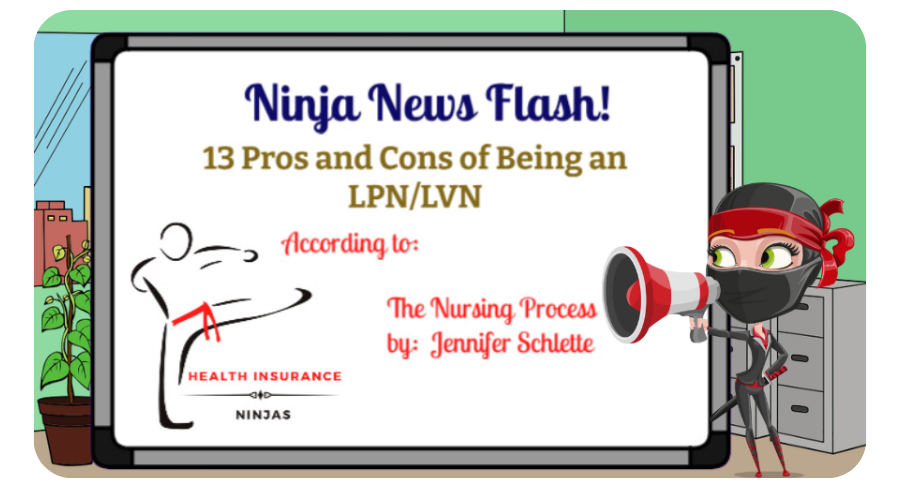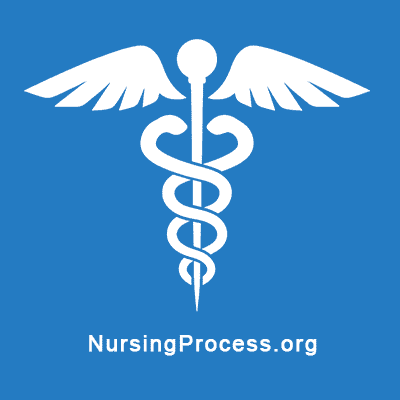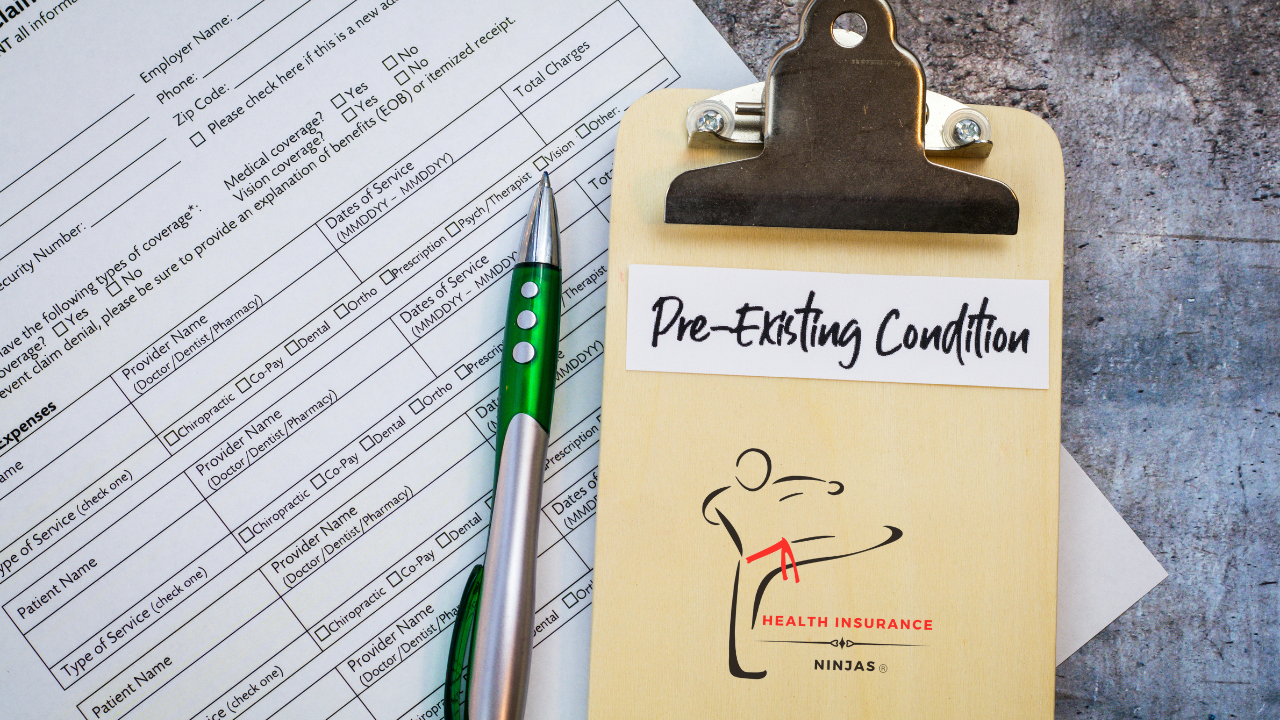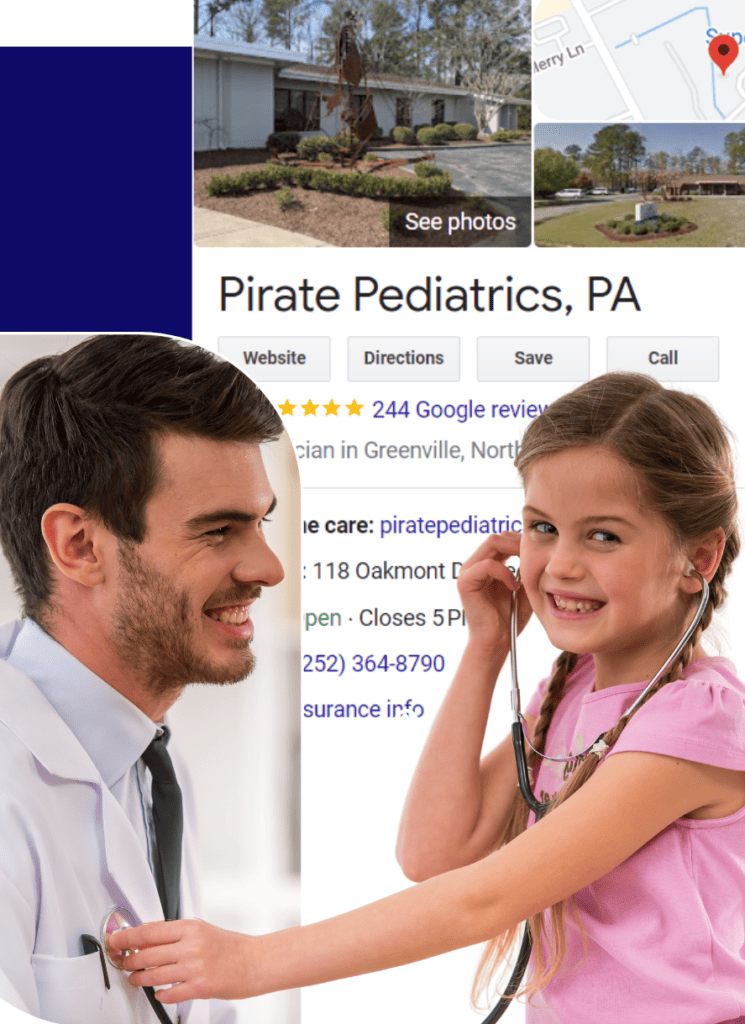
LPN/LVN: Both the Best and Worst Decision You’ll Ever Make
- September 7, 2023
- Ninja News Flash
Becoming a LPN/LVN (a licensed practical nurse or a licensed vocational nurse) is a significant choice that requires careful consideration of the pros and cons. This career path can offer numerous benefits, but it also comes with certain challenges.
By examining the following 13 pros and cons, individuals can gain a clearer understanding of whether becoming an LPN/LVN is the right fit for them. It is crucial to thoroughly evaluate these factors before making a final decision. Whether you are in the midst of weighing your options or finalizing your career path, this information serves as a helpful guide in determining if pursuing a career as an LPN/LVN aligns with their aspirations and goals.
According to:
Top 5 Cons of Working as a LPN/LVN
- Must Pass the PAX-PN
- Must Pass State Licensure Exam
- Many Facilities Won't Hire LPN/LVN Nurses
- Not Able to Work All Deparments
- Might Not Feel Recognized as a Real Nurse
The path to becoming an LPN/LVN can be a challenging one that requires passing multiple exams. One of these exams is the PAX-PN, which is necessary to even get started in an LPN/LVN program. This exam, created by the National Council of State Boards of Nursing, is an intense 8-hour test that consists of 220 multiple-choice questions. It serves as a way for programs to determine the readiness and knowledge of potential students before accepting them into the program. Successfully completing the PAX-PN is a crucial step in pursuing a career as an LPN/LVN.
However, passing the PAX-PN is not the only hurdle to overcome. Once you have completed your LPN/LVN program, you will need to pass your state’s licensure exam, the NCLEX-PN, in order to officially work as an LPN/LVN. This exam assesses your competency in various areas of nursing and is regulated by each state’s board of nursing. Each state sets its own rules and guidelines for the licensing process and the structure of the examination. Until you have successfully passed the NCLEX-PN, you will not be able to begin your career as an LPN/LVN. In the unfortunate event that you do not pass the exam, you will be required to pay a fee for each attempt to retake it.
Overall, becoming an LPN/LVN requires determination, hard work, and successfully passing the PAX-PN and NCLEX-PN exams. These exams serve as gatekeepers to ensure that individuals entering the field are competent and capable of providing quality care as healthcare professionals. Though the exam process may be intense, passing these exams is a significant accomplishment and marks the beginning of an exciting career in the field of nursing.
Many Facilities No Longer Hire LPN/LVN Nurses
One of the biggest disadvantages of being an LPN/LVN is the limited job prospects in hospitals. Many healthcare institutions, especially larger hospitals with high patient loads and acuity, have made the decision to only hire RNs instead of LPN/LVNs. The rationale behind this is twofold. Some hospitals argue that hiring more RNs ensures better quality care for patients, as they have a higher level of education and training. On the other hand, some institutions claim that employing LPN/LVNs is not cost-efficient. Therefore, aspiring LPN/LVNs who dream of working in a large hospital may need to reconsider their options.
Furthermore, even if LPN/LVNs do land a job in a hospital, their career options within the facility may be limited. They are often prohibited from working in specialized areas such as the emergency department and intensive care unit. These departments typically require nurses who can work independently and make critical, time-sensitive decisions that can have life-or-death implications. In these high-stakes environments, hospitals prefer to hire RNs who possess the necessary qualifications and expertise to handle such demanding roles.
Overall, the restrictions and limitations that LPN/LVNs face in hospitals can be discouraging for those pursuing a career in healthcare. It is important to be aware of these challenges and consider alternative paths or healthcare settings where LPN/LVNs may have more opportunities to flourish and make a meaningful impact.
Many LPN/LVN Nurses Feel Undervalued
As an LPN/LVN, there can be times when you may feel undervalued or not fully recognized as a legitimate nurse within the healthcare profession. This feeling of not being essential or acknowledged can stem from the fact that LPNs/LVNs typically have less advanced training and responsibilities compared to registered nurses (RNs). It’s not uncommon for LPNs/LVNs to perceive that their feelings and opinions may not hold as much weight as those of RNs. This can lead to a sense of inadequacy or a belief that their contributions are not as significant. However, it is crucial to acknowledge that LPNs/LVNs play a vital role in the healthcare team, providing compassionate care, assisting with patient support, and often acting as a bridge between patients and medical professionals.
While their scope of practice may differ from RNs, LPNs/LVNs have specialized skills and knowledge that are valued in healthcare settings. It is essential for LPNs/LVNs to remind themselves of the importance of their role and the positive impact they make on patients’ lives. By educating others about the crucial contributions of LPNs/LVNs, promoting professional growth, and advocating for recognition within the nursing field, LPNs/LVNs can help address and overcome any perceived lack of importance. It is through mutual respect and understanding that all members of the healthcare team can work together to provide the best possible care for patients.

Top 5 Pros of Working as a LPN/LVN
- There's a Short Training Period
- Get Hired & Make Money Sooner
- Earn a Steady Income
- Receive Benefits
- Lots of Job Availability
Becoming an LPN/LVN offers several advantages, including a short training period. Unlike registered nurses who typically have to study for 3-4 years, LPNs/LVNs can complete their training in about 12 months. This quick timeline allows individuals to enter the healthcare field sooner and start making a difference in patients’ lives. During the training period, LPNs/LVNs acquire the necessary skills to become valuable members of the healthcare team, performing essential tasks under the guidance of registered nurses.
Another benefit of being an LPN/LVN is the ability to enter the workforce and start earning money sooner than newly graduated RNs. Depending on the state they reside in, LPNs/LVNs can often begin practicing immediately after graduation from an accredited program. This early entrance into the workforce not only enables individuals to start paying off student loans but also provides them with the opportunity to save for further education, such as pursuing a higher level of nursing as an RN. Additionally, earning a paycheck allows LPNs/LVNs to fulfill financial obligations, both personal and professional, and work towards achieving independence. Overall, the ability to start earning money promptly is a significant advantage for those pursuing a career as an LPN/LVN.
LPN/LVN Nurse Enjoy Steady Income and Benefits
Do you want a steady, predictable job that has the potential to be lucrative? If so, then becoming an LPN/LVN may just be what you need! Not only will you have the opportunity to earn a steady income, but you will also have the ability to manage your expenses better because you know what will be coming in. With an average annual salary of $50,090 or $24.08 an hour, you can have peace of mind knowing that your hard work will be rewarded financially.
But it doesn’t stop there. As an LPN/LVN, you will also receive a range of benefits that can further enhance your quality of life. One of the best advantages is that you will be covered by your employer’s health benefits, ensuring that you and your family are protected. From dental plans to paid vacation and sick leave, these benefits provide a safety net in case of unforeseen circumstances. Furthermore, you may also have access to life insurance, long-term care insurance, and disability insurance, further safeguarding your future.
Employers may even go above and beyond by offering additional benefits such as education assistance, allowing you to continue your professional development and reach new heights in your career. Choosing to become an LPN/LVN not only offers stability and financial rewards but also provides you with a comprehensive package of benefits, making it an attractive career choice for those seeking security and peace of mind.
There Are Lots of LPN/LVN Positions Available
One of the major advantages of being an LPN/LVN is the job security it offers. The demand for LPNs/LVNs is consistently high, making it relatively easy to find employment in this field. LPNs/LVNs possess a valuable set of skills that are highly sought after in the healthcare industry. In fact, the recent nursing shortages in areas like Long-Term Care and other Domiciliary Providers have further increased the value of LPN/LVN expertise. This means that if you ever feel the need to switch careers or explore different opportunities, you can be confident in your ability to quickly find another job. The stability and availability of job opportunities in the LPN/LVN profession allows for greater peace of mind and the assurance of a steady income.
Final Thoughts on the Pros and Cons of LPN/LVN Work
In conclusion, weighing the pros and cons is crucial when considering a career as an LPN/LVN. Understanding the advantages and disadvantages of these positions can help you make an informed decision about your future. This breakdown of the top 13 pros and cons of being an LPN/LVN provides valuable information to assist you in determining if this career path aligns with your goals and aspirations.
Whether you are in the process of making your final decision or simply exploring your options, this information can help guide you in evaluating if becoming an LPN/LVN is the right career choice for you.
The Ninja News Flash⚡
Subscribe today for bi-weekly free resources, alerts, freebies, and more specifically for travel nurses, PRNs, and O/O Truckers valuable insights regarding YOUR Industry AND healthcare, insurance, and work/life balance. Like & Share please.
Stay in the Ninja News Loop!
Subscribe to our monthly newsletter & receive all our free resources once a month in your Inbox.

Check Us Out!

The Truth About Per Diem Vs Part Time: What You Need To Know
Per Diem or Part Time nursing, what’s right for you? The world of nursing today presents an excellent variety of choices for work settings and

The Best Paying Nursing Jobs of 2024: Maximize Your Earnings
Nursing jobs can be very rewarding careers, both personally and financially. The median annual salary for registered nurses (RNs) in the US is $81,220. However,

Student Loan Forgiveness for Nurses: What You Need to Know
Student Loan Forgiveness can be the answer to many nurses struggling with debt. There is hope for relief through student loan forgiveness programs specifically designed

How to Make the Most of Your Travel Nurse Salary
As a travel nurse, you have the unique advantage of potentially earning a significantly higher salary compared to staff nurses. This increased income presents an





